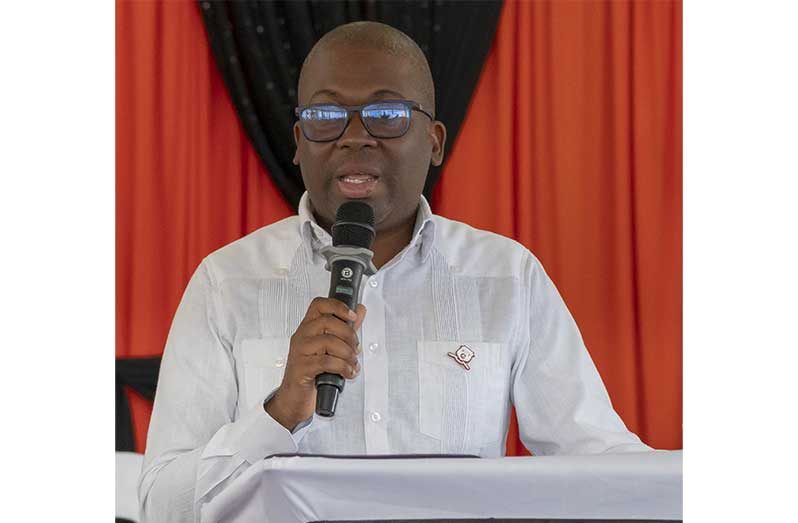NEARLY 200 young Guyanese are now equipped with practical, job-ready skills, thanks to a transformative training programme jointly delivered by the Board of Industrial Training (BIT) and the Basic Needs Trust Fund (BNTF).
At a graduation ceremony held recently at the Leonora Technical & Vocational Training Centre, 192 graduates were honoured for completing courses in fields critical to Guyana’s national development, from welding and electrical installation to refrigeration repair and heavy-duty equipment operation.
Of the total graduates, 47—including nine women—successfully completed specialised training in Heavy Duty Equipment Operation, a flagship initiative under the Technical and Vocational Education and Training (TVET) partnership between BIT and BNTF.
This collaboration specifically targets Guyana’s well-documented skilled labour gap, particularly in the rapidly expanding agriculture, construction, and oil and gas sectors.
In his keynote address, BIT Chief Executive Officer, Richard Maughn, commended the graduates for their commitment and resilience, urging them to embrace the responsibility that comes with their new skills.
Quoting from Hebrews 10:35-36, Maughn reminded them: “Confidence in your skills, patience in your process, and commitment to doing what is right will unlock the doors of opportunity that now stand before you.”
He stressed that the graduation was more than just a personal milestone; it was a collective step forward for communities across the country. “This marks a moment of triumph, not just for the 192 of you gathered here, but for every community you represent and every future you will now help shape,” Maughn told the graduates.
The Basic Needs Trust Fund, a long-standing development programme funded by the Caribbean Development Bank and supported by the Government of Guyana, has played a vital role in expanding access to technical and vocational training.
Under this programme, BNTF covered 97 per cent of project costs—including tuition fees, training materials, personal protective equipment, and even transportation allowances—ensuring that training reaches vulnerable and underserved populations which might otherwise be unable to afford such opportunities.
The training programmes, delivered through a Competency-Based Education model, ensure that graduates are not only skilled but adaptable to the demands of Guyana’s evolving industries. The initiative directly supports the government’s push to close the skilled labour gap as major national projects ramp up in construction, infrastructure, and energy.
Maughn reaffirmed BIT’s commitment to working closely with the BNTF and other development partners to roll out similar programmes in other regions. He described the collaboration as a critical tool for upskilling and reskilling Guyanese in both urban and rural communities.
“Your life will change to the extent that you continue to envision, grow, hope, and dream,” Maughn encouraged the graduates. “Be confident. Be patient. Be persistent. Be excellent and, above all, stay committed to being a force for good in this country we call home.”
As the newly trained graduates stepped forward to collect their certificates, the atmosphere was filled with pride and hope. Many overcame significant personal and financial obstacles to complete the programme, and now stand ready to contribute to Guyana’s workforce—stronger, skilled, and determined to help build a future of inclusive growth.
The Basic Needs Trust Fund’s ongoing investment in skills training remains a cornerstone of Guyana’s broader national development strategy, ensuring that no community is left behind as the country grows.



.jpg)









